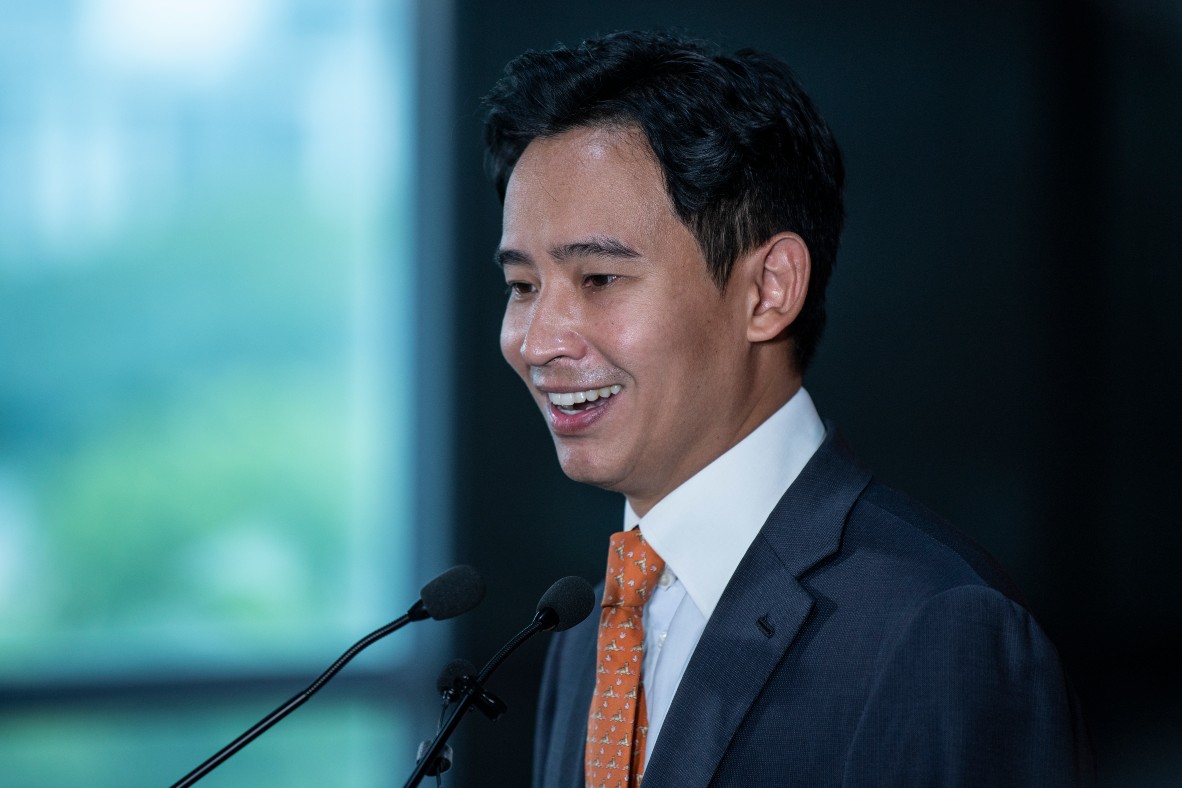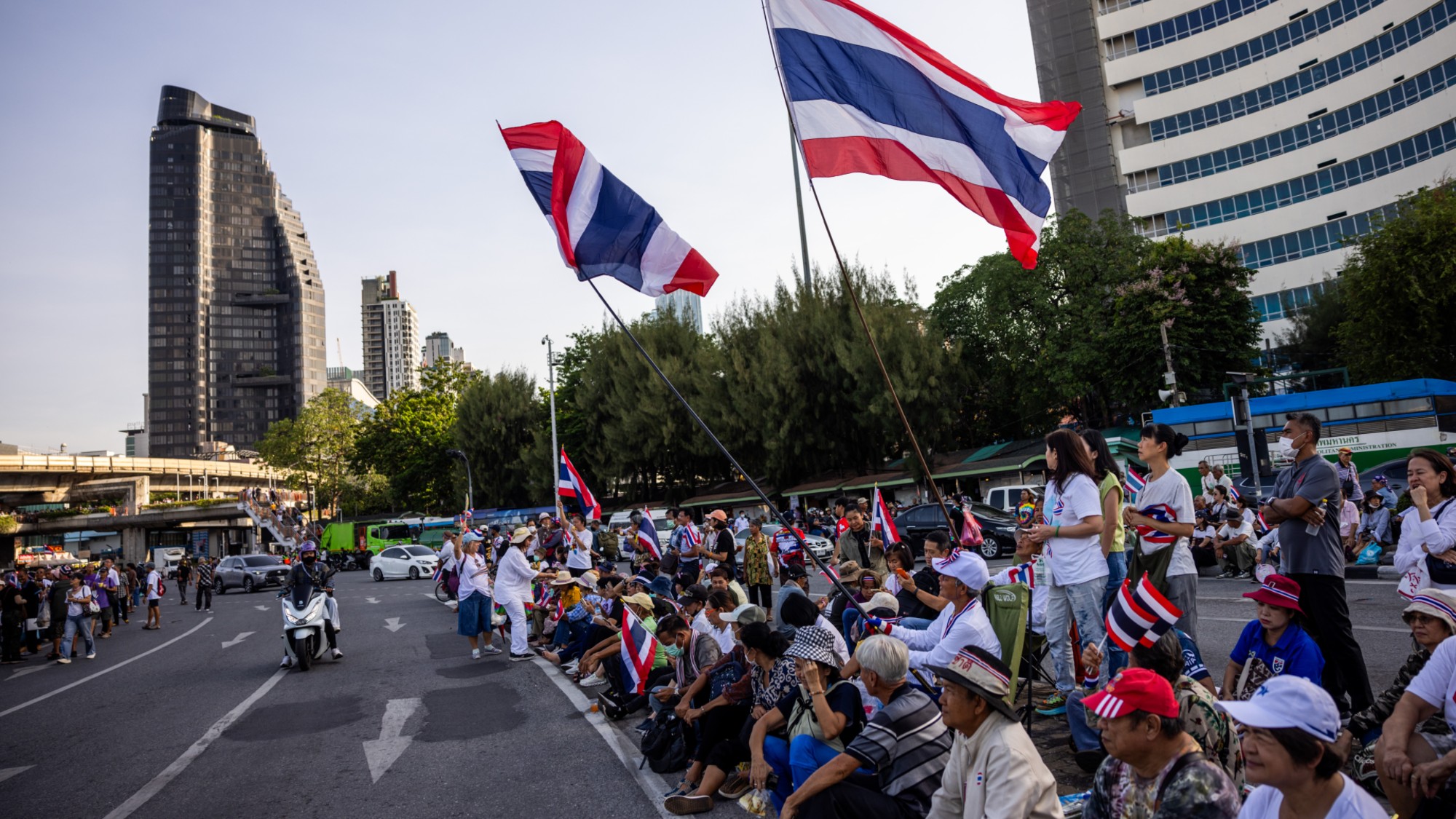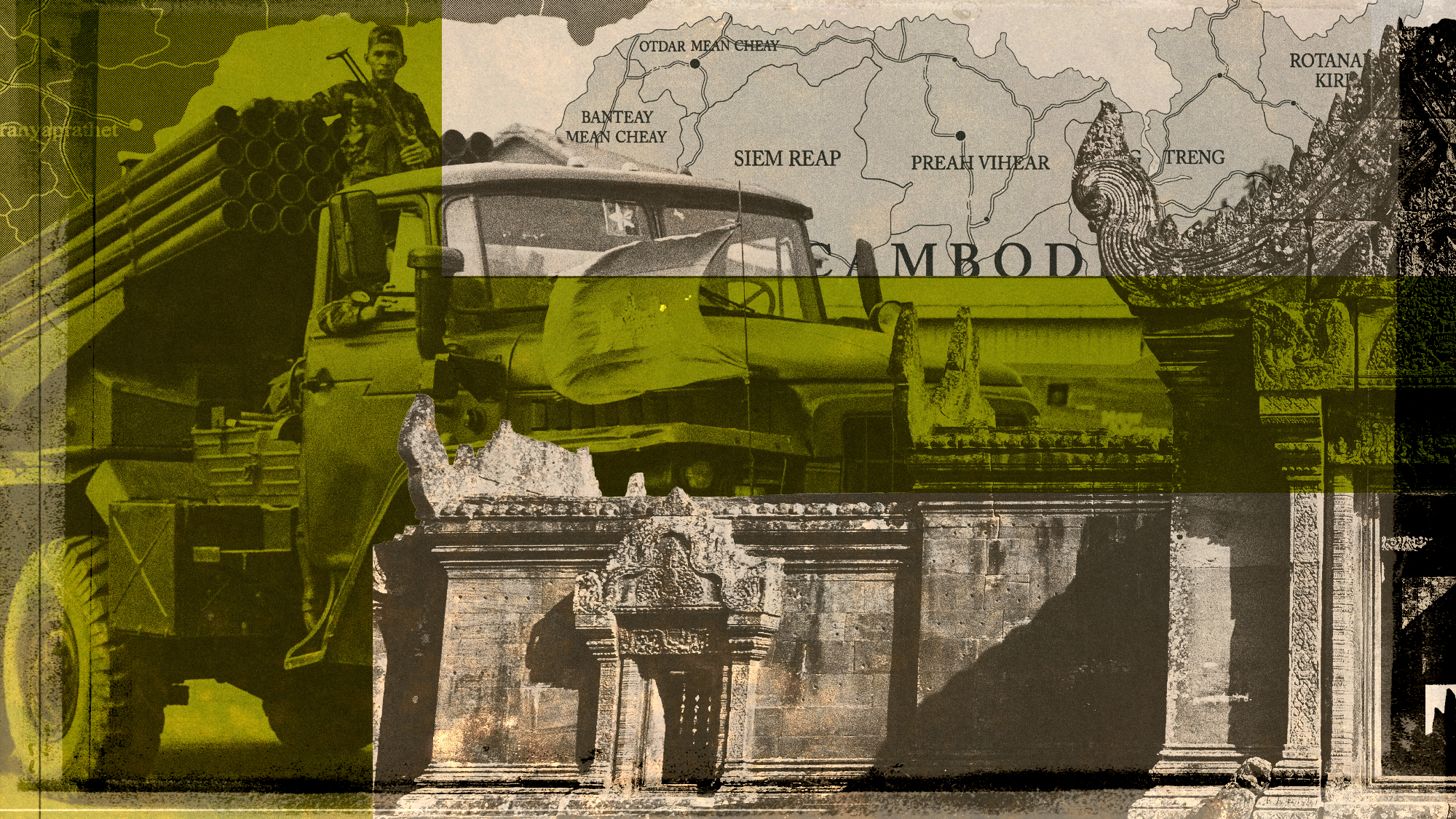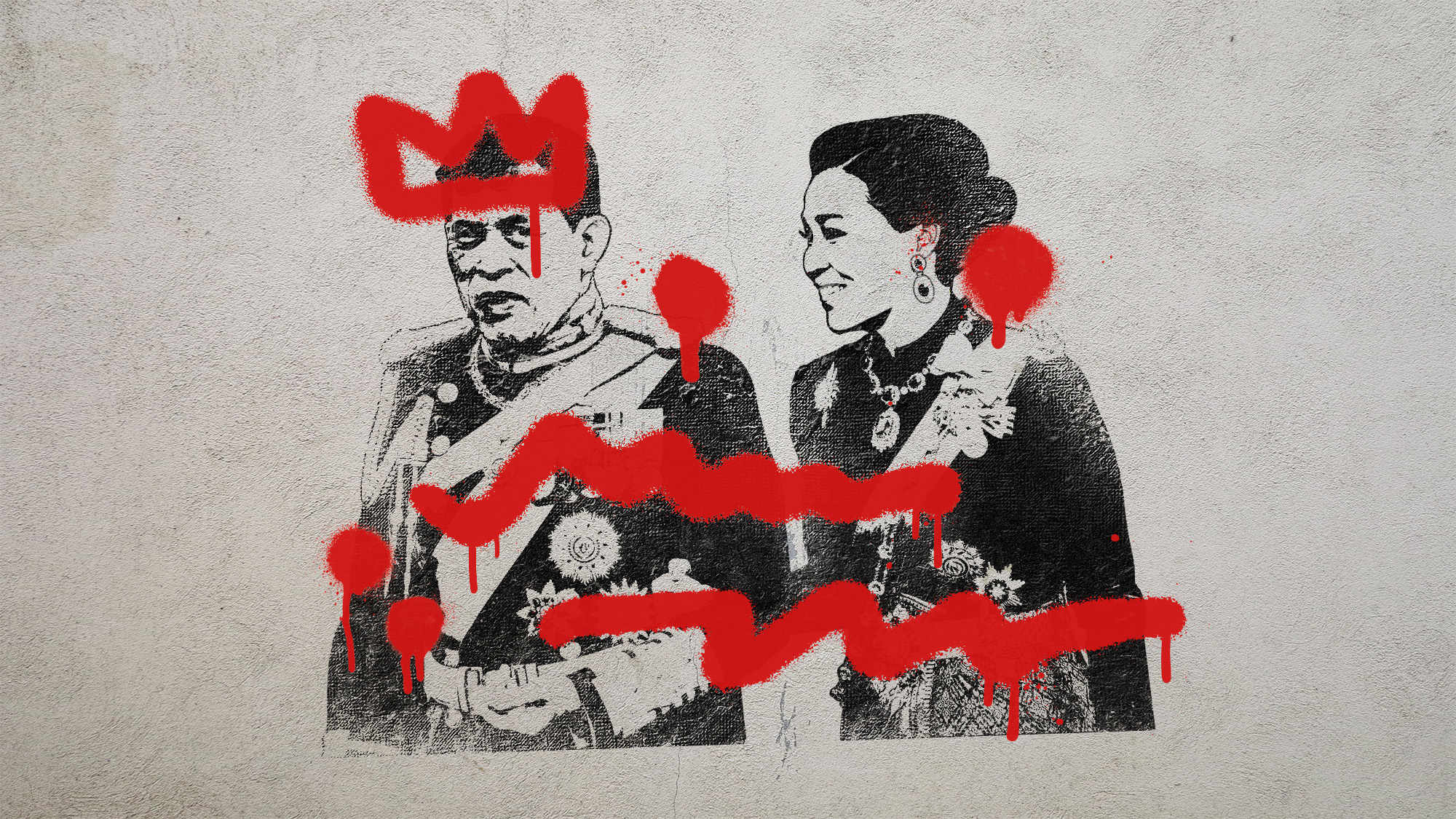Victory for Move Forward: what ‘political earthquake’ means for Thailand
Next step uncertain despite resounding election defeat of military-aligned parties

A free daily email with the biggest news stories of the day – and the best features from TheWeek.com
You are now subscribed
Your newsletter sign-up was successful
Voters in Thailand have rejected military rule in favour of the reformist opposition following nine years under a prime minister who took power in a coup.
Early results from Sunday’s general election showed the Move Forward Party “exceeding every prediction” to win 151 of the 500 seats in the lower house, said the BBC’s South East Asia correspondent Jonathan Head. The “stunning” victory put Move Forward ten seats in front of the populist Pheu Thai Party and far ahead of nationalist former army chief Prayuth Chan-ocha, who came to power in 2014.
Analysts described the result as a “political earthquake”, according to Head, but what happens next is less certain.
The Week
Escape your echo chamber. Get the facts behind the news, plus analysis from multiple perspectives.

Sign up for The Week's Free Newsletters
From our morning news briefing to a weekly Good News Newsletter, get the best of The Week delivered directly to your inbox.
From our morning news briefing to a weekly Good News Newsletter, get the best of The Week delivered directly to your inbox.
‘Change narrative’
The election was the “latest bout in a long-running battle for power” between the original favourites Pheu Thai, led by the daughter of billionaire former PM Thaksin Shinawatra, and a “nexus of old money, conservatives and military”, said Channel News Asia (CNA).
Move Forward’s victory at the polls followed “a campaign pitting a young generation yearning for change against the conservative elite” embodied by Chan-ocha, said the Bangkok Post.
“Thais – young and old alike – turned up in huge numbers to cast their ballots, with many in the capital saying they were voting for change,” said Al Jazeera. By midday on Sunday, officials at several polling stations in Bangkok reportedly said that “more than half of those eligible had braved the sweltering heat to cast their ballots”.
The surge in support for Move Forward “indicates a shift towards charismatic individuals who are social media savvy, and critical of the strait-laced, corruption-riddled military leaders”, wrote Antonio Rappa, an associate professor at the Singapore University of Social Sciences, for CNA.
A free daily email with the biggest news stories of the day – and the best features from TheWeek.com
The pro-democracy party “seeks to diminish the military’s political role” and amend Thailand’s “stringent law” on royal defamation, “which critics claim suppresses dissent”, said Bangkok-based news site Thaiger.
This “change narrative”, said South China Morning Post, apparently “cut through beyond their youth base”.
Coup or court order?
Voters have “delivered a vocal call for change by overwhelmingly voting to reject military-backed parties”, said CNN, yet it’s “not clear who will take power”.
Pheu Thai, the second-largest party, has agreed to join Move Forward and four smaller opposition parties, “giving them a coalition of more than 60% of seats in the new parliament”, the BBC’s Head reported.
But as Thaiger pointed out, “complex parliamentary rules” established after the 2014 coup “pose challenges to the opposition parties”, who will “need to negotiate deals and secure support from various factions”, including the “junta-appointed” Senate members who have “historically allied with military parties”.
These senators will vote on the appointment of the next prime minister and the formation of the upcoming administration.
In a “kingdom where coups and court orders have often trumped the ballot box”, said the Bangkok Post, young voters fear Sunday’s result “may yet be thwarted”.
Early signs point to a court order being a more likely tactic than another coup. “Accusations of vote-buying, including in Bangkok, are already being levelled apparently against Move Forward and likely other parties”, said Asia Times. It could take the Election Commission “months to adjudicate before announcing final results”.
The ”overwhelming result” of this election will be “much more difficult to manipulate without an outright dissolution of Move Forward”, a move that would “explode Thailand’s credibility as a democracy” and almost “inevitably lead to vigorous pro-democracy street protests”, the site added.
But according to the Bangkok Post, “rumours are already swirling” that Move Forward may be dissolved by court order, the “same fate that befell its predecessor Future Forward Party after it performed unexpectedly well at the 2019 elections”.
Chas Newkey-Burden has been part of The Week Digital team for more than a decade and a journalist for 25 years, starting out on the irreverent football weekly 90 Minutes, before moving to lifestyle magazines Loaded and Attitude. He was a columnist for The Big Issue and landed a world exclusive with David Beckham that became the weekly magazine’s bestselling issue. He now writes regularly for The Guardian, The Telegraph, The Independent, Metro, FourFourTwo and the i new site. He is also the author of a number of non-fiction books.
-
 The ‘ravenous’ demand for Cornish minerals
The ‘ravenous’ demand for Cornish mineralsUnder the Radar Growing need for critical minerals to power tech has intensified ‘appetite’ for lithium, which could be a ‘huge boon’ for local economy
-
 Why are election experts taking Trump’s midterm threats seriously?
Why are election experts taking Trump’s midterm threats seriously?IN THE SPOTLIGHT As the president muses about polling place deployments and a centralized electoral system aimed at one-party control, lawmakers are taking this administration at its word
-
 ‘Restaurateurs have become millionaires’
‘Restaurateurs have become millionaires’Instant Opinion Opinion, comment and editorials of the day
-
 How long can Keir Starmer last as Labour leader?
How long can Keir Starmer last as Labour leader?Today's Big Question Pathway to a coup ‘still unclear’ even as potential challengers begin manoeuvring into position
-
 Is a Reform-Tory pact becoming more likely?
Is a Reform-Tory pact becoming more likely?Today’s Big Question Nigel Farage’s party is ahead in the polls but still falls well short of a Commons majority, while Conservatives are still losing MPs to Reform
-
 The Liberal Democrats: on the march?
The Liberal Democrats: on the march?Talking Point After winning their highest number of seats in 2024, can the Lib Dems marry ‘stunts’ with a ‘more focused electoral strategy’?
-
 Is Andy Burnham making a bid to replace Keir Starmer?
Is Andy Burnham making a bid to replace Keir Starmer?Today's Big Question Mayor of Manchester on manoeuvres but faces a number of obstacles before he can even run
-
 ‘Democracy is under threat globally’
‘Democracy is under threat globally’Instant Opinion Opinion, comment and editorials of the day
-
 Could Thailand and Cambodia really go to war?
Could Thailand and Cambodia really go to war?Today's Big Question Thai leader has warned that recent hostilities over border dispute could lead to all-out conflict
-
 Thai court suspends prime minister over leaked call
Thai court suspends prime minister over leaked callSpeed Read Prime Minister Paetongtarn Shinawatra has been suspended, pending an ethics investigation
-
 An American faces years in jail for allegedly insulting Thailand's monarchy
An American faces years in jail for allegedly insulting Thailand's monarchyUnder the Radar The country's laws against insulting the monarchy are some of the world's strongest